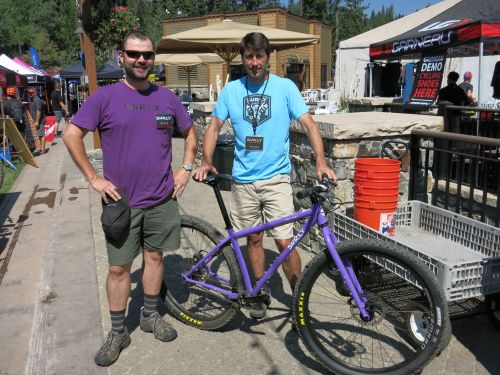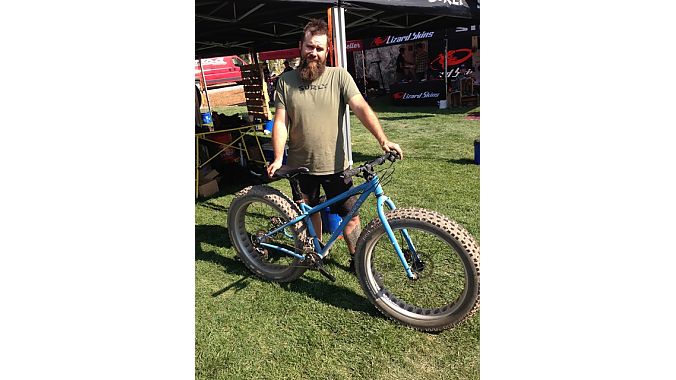TRUCKEE, Calif. (BRAIN) — Surly is still betting big on the fat bike market, but has trimmed its 2017 line from five models to two — the Wednesday and the Ice Cream Truck.
Still, John Fleck, Surly's global sales manager, said a third model could be added later in the season.
So why is QBP putting one of its fat bike lines on what could be a temporary diet? Let Fleck, working the Surly booth at SaddleDrive, explain. "When I was at Eurobike two years ago, every bike brand had a fat bike in its line. Even Pinarello had one," he said. But at last year's Eurobike, fat bikes had been replaced with e-bikes as many companies moved on to the next trend.
Making matters worse was a predictable glut with some companies still now, in mid summer, trying to unload their phat rollers. QBP and other brands began discounting fat bikes in January and February as inventory piled up. Boosting that glut was poor snow in the upper Midwest and Northeast this winter — mainstay markets in the fat bike arena.
And while many bike brands are quietly exiting the fat market, Surly is expecting continued demand but fewer players. And there is opportunity there for companies that remain committed to the category. "It's been a tough season and the fat bike bubble finally burst," Fleck said.
Surly wants its fat bikes to sell — the 2017 Wednesday retails for $1,499, the same price as last year, while the Ice Cream Truck, rolling on five-inch tires, will retail for $1,999. The Ice Cream Truck is spec'd with a mix of XT and SLX components with SRAM Guide brakes. The Wednesday runs a full SRAM X5 drivetrain with Hayes brakes.

While Surly was far from the first to build a fat bike, Surly gets credit for putting the category front and center in the marketplace with its 2005 introduction of the Pugsley — a purple rig sporting Endomorph tires on Large Marge rims.
But as Paul Zeigle, Surly's brand manager explained, all Surly models are anchored in versatility. "These bikes can do much more than one thing," he said, pointing to the horizontal dropouts in a new Troll. It can swallow fat tires, be set up as a single speed, or take a Rohloff hub.
Surly, manufactured in Taiwan, can handle whatever a consumer wants to do — gravel, road, bike packing, touring. And the steel bikes can take a beating. "They're built to last so riders aren't replacing them," he said. "But that may not be the best business practice," Zeigle quipped.
Fleck, in a meeting with dealers, emphasized the brand's commitment to steel — 4130 double-butted chromoly found in all five platforms — OmniTerra (fat bikes); Trail (mountain bikes), Haulin' (cargo bikes), Touring and Pavement.
It's a brand that's a favorite among shop staff and it's the rare brand driven from the bottom up. Consumers ask for them and if a shop doesn't stock them, they often ask if the dealer could order them, Zeigle said.
Any dealer can order a Surly, said Fleck. "But there's no discount and they pay the catalog price," he added. Authorized Surly dealers, about 120, can participate in Surly's KISS (Keep It Simple, Stupid) program with four levels of buy-in: $10,000 earns a 5 percent discount; $25,000 gets 7 percent; $50,000 is 8 percent; and a $75,000 level delivers a 9 percent discount.
The base catalog margin for non-authorized dealers is 33 percent. And dealers who participate in QBP's Dealer Choice program also can earn discounts, Fleck added.
Surly's popularity spans the globe with sales in more than 30 countries with Germany, the Netherlands, Japan, the United Kingdom and Canada major markets. The brand is also growing in south Asia, particularly in Thailand and the Philippines, Fleck said.






